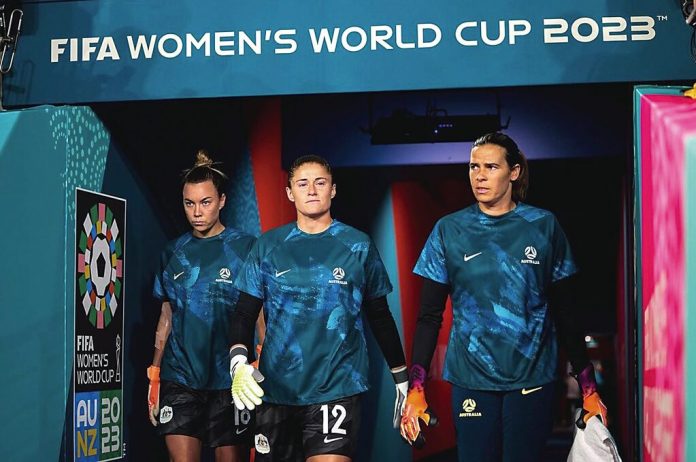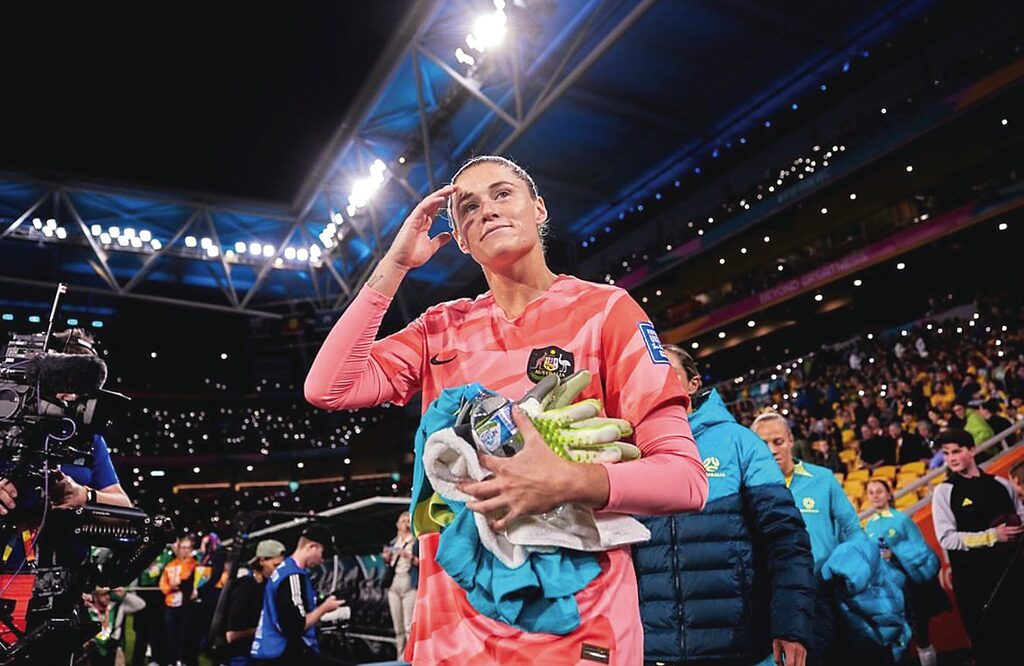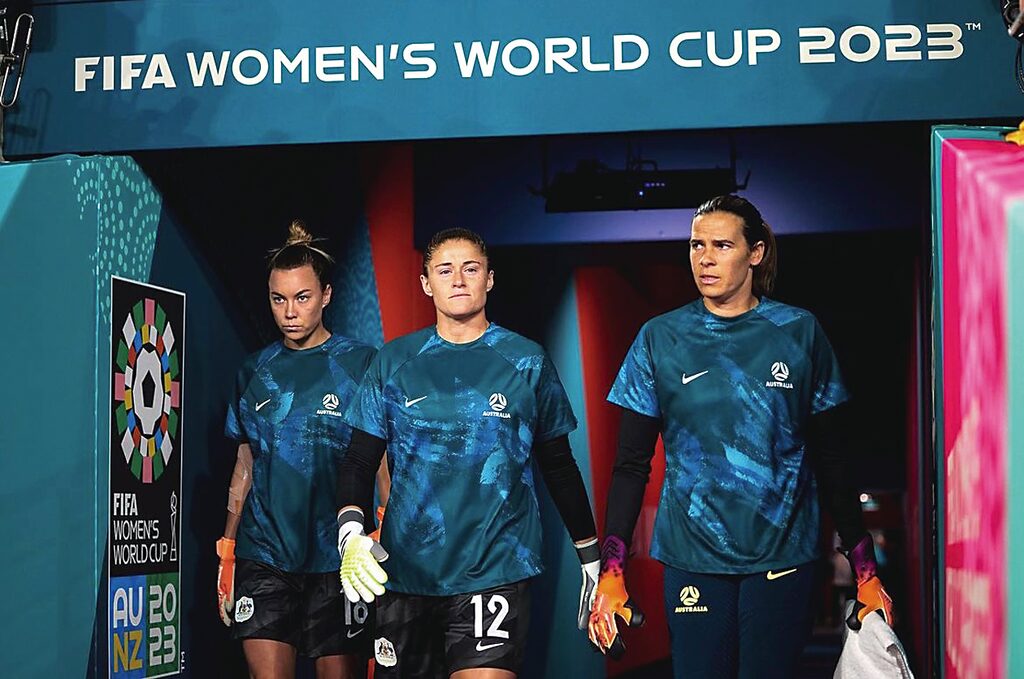
TOM HAYES
SOCCER
By TOM HAYES THERE won’t be a new public holiday added this year, but the Matildas have certainly done Australia proud. The Matildas were unfortunately knocked out of the Women’s World Cup, going down 3-1 to England in the semi final on Wednesday, August 16. Nonetheless, the Matildas proved to Australia and the rest of the world that Australia is indeed a footballing nation. Not only did fans comes in their numbers to watch the games live, support was shown from all edges of Australia. Part of the squad was Moe’s Teagan Micah, a back-up goalkeeper for the Matildas, who proved it was seemingly impossible to make an impression when number one goalkeeper Mackenzie Arnold is on the top of her game. Things weren’t so straight forward for the Aussies, despite making their way to the knockout stages. They kicked off their campaign with a 1-0 win over Republic of Ireland, before a shock 3-2 loss to Nigeria which put doubt on their progression. The Matildas put all doubt aside by thrashing Canada 4-0 in their final group stage match, to not only secure progression to the knockouts, but top their group. Denmark was their first task at hand, who they passed with flying colours with Caitlin Foord and Hayley Raso scoring in the 2-0 win. Waiting for them in the quarter final was France, who had a plethora of world-class players, but one problem for them, Australia were playing with 12 players – the crowd was behind them. After a nervous 120 minutes of football, it all came down to penalties, and what was to come was one of the longest penalty shootouts in World Cup history. With the scores tied at 6-6 in penalties, France’s Kenza Dali stepped up and had her penalty saved by Arnold, but the referee decided it was to be retaken after Arnold stepped off her line before the strike. Dali placed the ball down again, and Arnold flew to the rescue, this time legally denying her for a second time. Clare Hunt had the chance to send Australia through, but missed her penalty, bringing France back into it. Vicki Bécko walked up for France, sending her shot into the post, giving Australia another chance to win the tie. Cortnee Vine confidently walked up and slotted it to the goalkeepers left to send Australia through to the semi final – one step away from the Final. England were waiting for them in the semi final, and would prove to be a much harder task than what they had experienced so far. The Lionesses set the tone with majority of possession and ruthless mounts of pressure on Australia’s defence, which soon would pay dividends when Ella Toone put the English in front in the first half. Australia were catapulted back into the game with a moment of individual brilliance from Sam Kerr – who made her first start for the competition – dribbling with the ball before launching a shot from 25 yards into the top corner. The ecstasy would only last for merely 10 minutes, after England found a second, then a third to put all hopes of an Australian comeback out of possibility. Micah was unable to get any minutes on the pitch, as Arnold was a secure choice for the number one spot, especially after her quarter final penalty shootout heroics. Australia faced Sweden in the third-place playoff match, going down, going down 2-0 on Saturday, August 19, to secure a fourth-place finish at the Women’s World Cup. Spain were crowned champions of the world in their 1-0 win over England in the final on Sunday, August 20. Micah will still reap the rewards of the Matildas’ successes, by gaining more experience as she watched how best of the best operates. Prize money for the 2023 Women’s World Cup is nearly four times more since the last event in 2019, US$110 million on offer, opposed to the US$30m in 2019. By simply qualifying for the tournament and making no inroads on the knockout stage, US$1,560,000 is still on offer for those countries. By finishing fourth at the Women’s World Cup, the Matildas will receive US$2,455,000, meanwhile the Spanish champions will take home US$4,290,000. Every player in the squad has been allocated prize money on top of their country’s prize money, which also depends on their country’s progression in the tournament. All players in the tournament were guaranteed to pocket US$30,000 for simply qualifying, while those that won from Spain will take home US$270,000 each. For the Matildas’ fourth-place finish, each player in the squad is set to receive US$165,000. “The global salary of women’s professional footballers is approximately US$14,000 annually so the amounts allocated under this unprecedented new distribution model will have a real and meaningful impact on the lives and careers on these players,” FIFA president Gianni Infantino said ahead of the Women’s World Cup. Players will soon return to their respective clubs, as Micah heads to Liverpool where she secured a transfer to in mid-July 2023. Micah will feature in the English Women’s Super League, where she could play against nine of her Matildas teammates and three other Australians by the likes of Sam Kerr, Caitlin Ford, Mackenzie Arnold and Mary Fowler.












